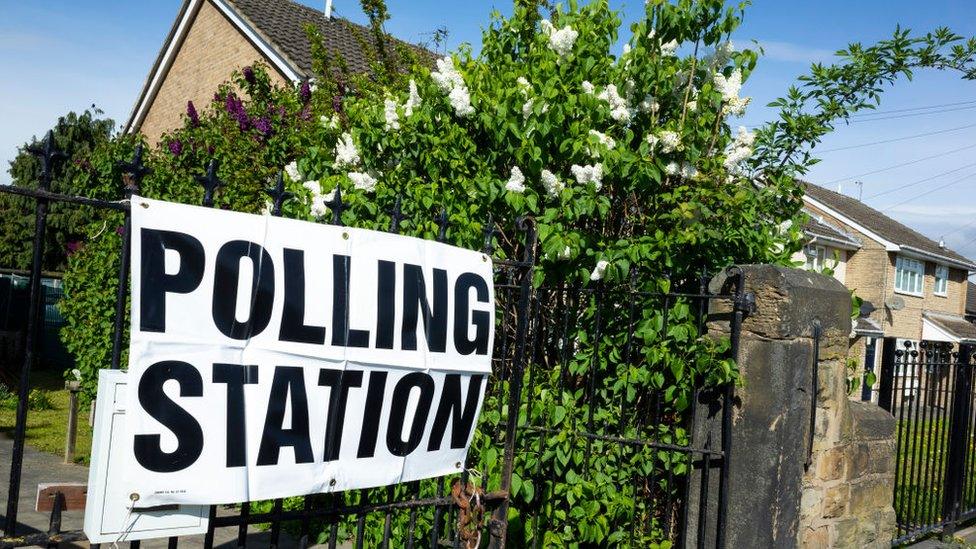First snapshot of Voter ID impact on election in East of England
- Published
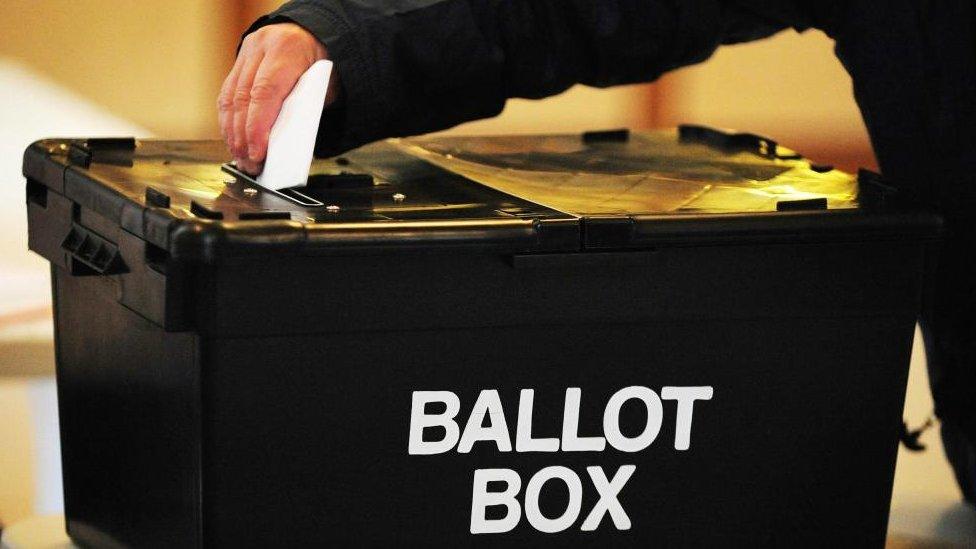
People got the chance to vote for councillors across Beds, Cambs, Essex, Herts, Norfolk and Suffolk
A snapshot of voting in the local elections in the East of England has found thousands of people were turned away for not having the correct ID.
The new identification rule fully came into use this year, and many errant voters returned with the correct ID and voted, BBC Politics East has found.
In Essex, 1,199 people turned up to vote at polling stations without a valid form of photo ID.
Of those 754 returned to vote with a valid ID, while 445 did not return.
The data, compiled by BBC Essex from the 14 councils who had elections on 4 May, show most people did return to vote after initially being told they could not unless they provided photo ID such as a driving licence, passport or bus pass.

The ID policy was introduced by the Conservative government last year, with the promise that it would help tackle voter fraud.
Opponents argued that the level of fraud was actually quite low and the policy would disenfranchise people who were unaware of the change and did not routinely carry ID.
More than 50 people were unable to cast a vote in elections in Southend elections.
Council figures showed 145 people were turned away from the city's polling stations, however 94 returned with the required ID and were given their ballot paper.
Labour councillor for the Kursaal Ward, Matt Dent, said: "Quite frequently, particularly in local elections, the results are decided by fairly small margins.
"Last year for instance in Thorpe the ward was won by a single vote.
"If you are in a potential situation where more people have been turned away than the margin of victory then I personally think you are on very dodgy ground."
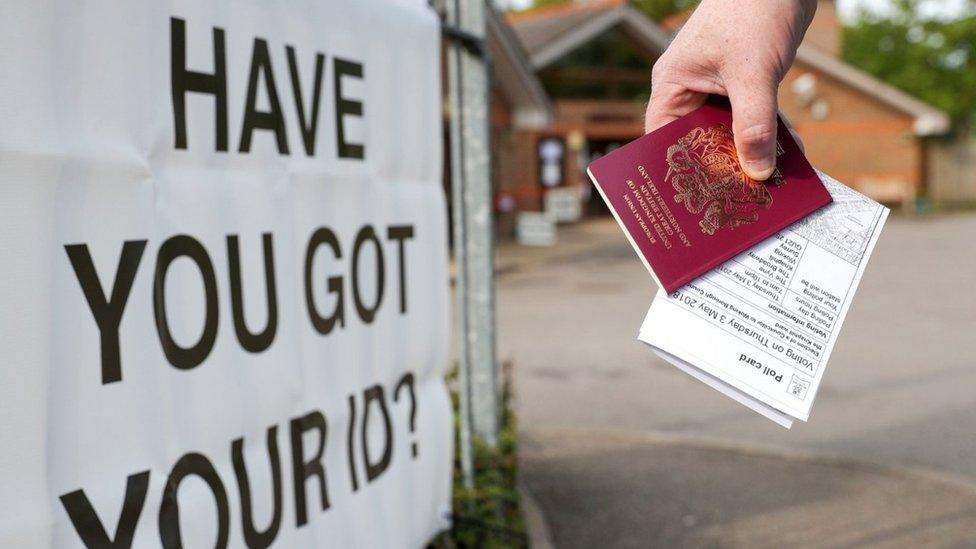
In Essex, 1,199 people turned up to vote at polling stations without a valid form of Photo ID
Braintree, where voter ID trials were held in the local elections in 2019, had the highest number of people turn up without valid ID in Essex: 216 with 80 people never returning before polls closed at 22:00 BST.
Hundreds of Norfolk voters were turned away from polling stations, with almost a third not coming back.
While the vast majority of people were able to vote without problems, 667 people were turned away from Norfolk's polling stations.
Almost a third of them - 233 people - never returned.
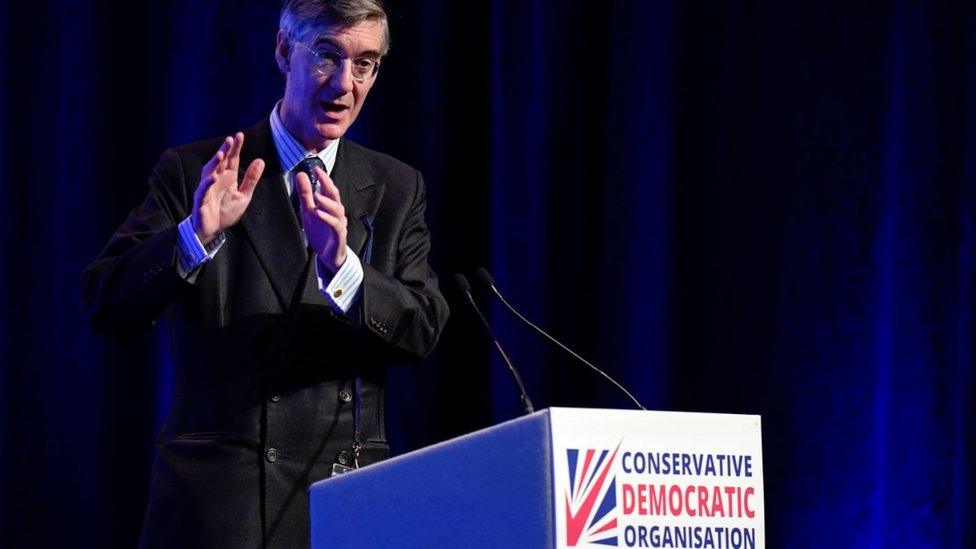
Former cabinet minster Jacob Rees-Mogg suggested lack of photo ID cost the Conservatives in the local elections in 2023
Norwich, which has 101,929 eligible voters, saw the most people affected, with 184 turned away - 0.18% of the electorate.
Of those, 116 returned with correct photo ID.
Speaking at the National Conservativism Conference, ex-cabinet minister Jacob Rees-Mogg said: "Parties that try and gerrymander end up finding their clever scheme comes back to bite them, as dare I say we found by insisting on voter ID for elections.
"We found the people who didn't have ID were elderly and they by and large voted Conservative, so we made it hard for our own voters and we upset a system that worked perfectly well."
Asked about Mr Rees-Mogg's comments, Essex County Council's Conservative leader Kevin Bentley, who is also the Local Government Association chairman of the People and Places Board, said that was "one perspective from him on that; we need to find out if that is true".
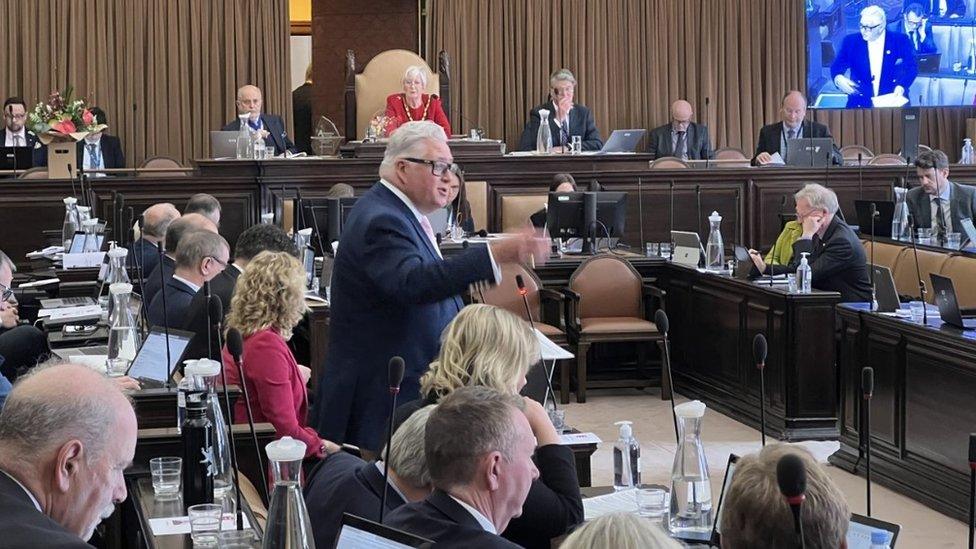
Kevin Bentley, leader of Essex County Council, which only held one ward by-election this year, said use of voter ID "appears to have gone well"
Mr Bentley said the use of voter ID at this year's local elections in England "appears to have gone well", but councils must "assess how it went across the country".
A full round of elections is not due at the county council until 2025.
Asked about the 445 people at Essex's district and unitary councils who were turned away and did not come back to vote, Mr Bentley said: "We need to analyse and see why they did not go back."
A Department for Levelling Up spokesman said: "It's vital we keep our democracy secure and prevent the potential for voter fraud.
"Following local elections in May, it is essential that we understand how voter identification has operated in practice."
You can see more on this story on Politics East on BBC One on Sunday, 21 May at 10:00 GMT, with it also available on BBC iPlayer afterwards.

Find BBC News: East of England on Facebook, external, Instagram, external and Twitter, external. If you have a story suggestion please email eastofenglandnews@bbc.co.uk, external
- Published15 May 2023
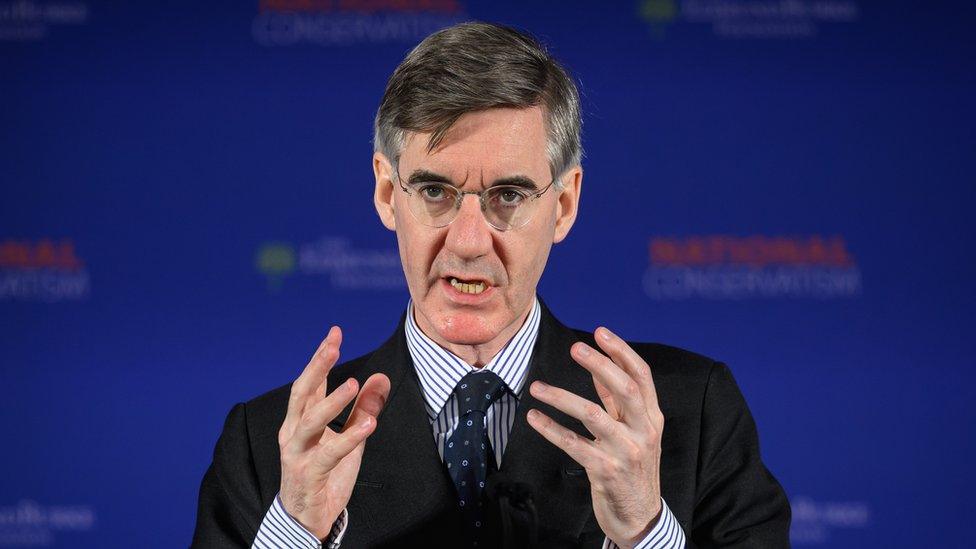
- Published5 May 2023
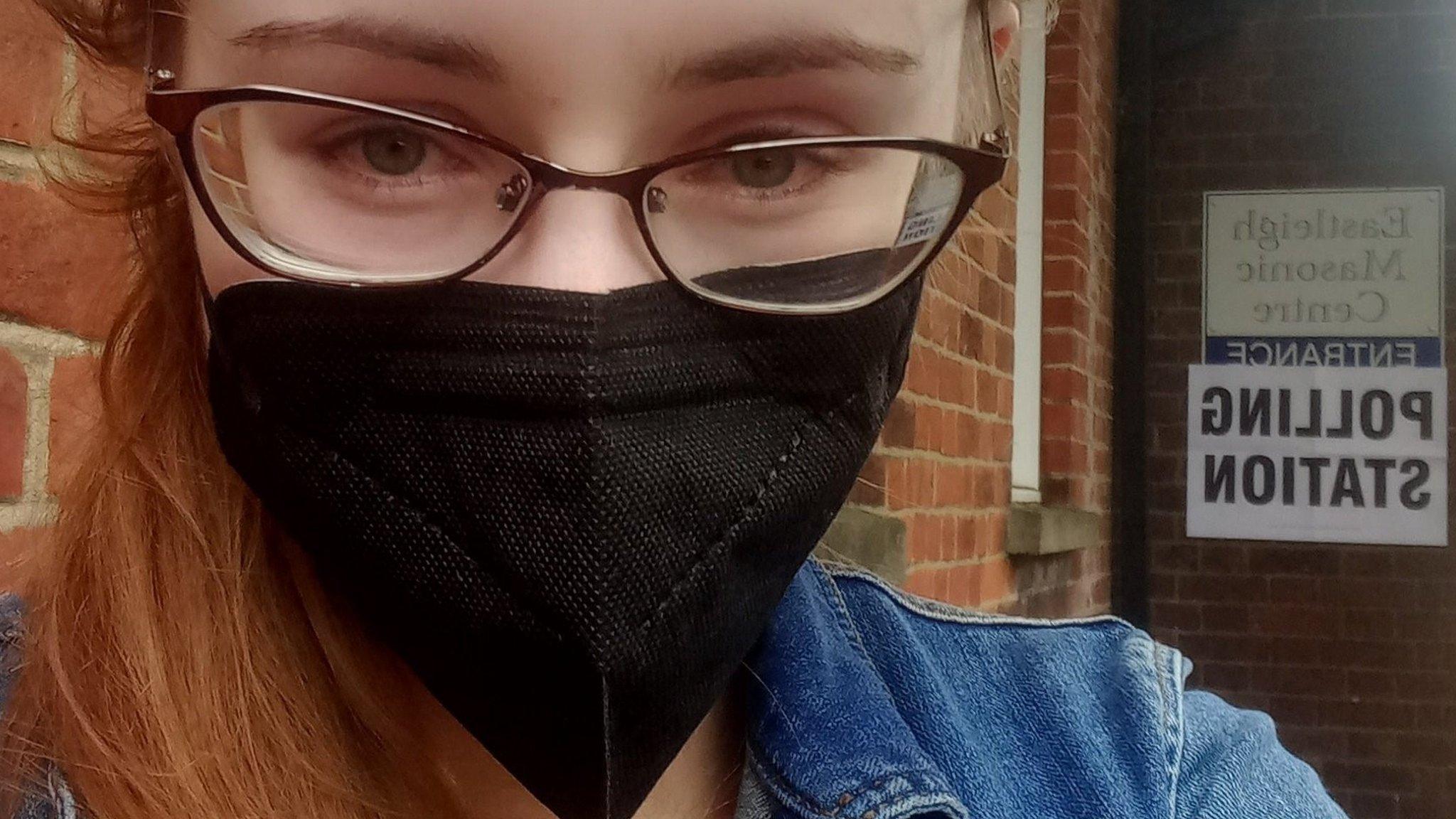
- Published5 May 2023
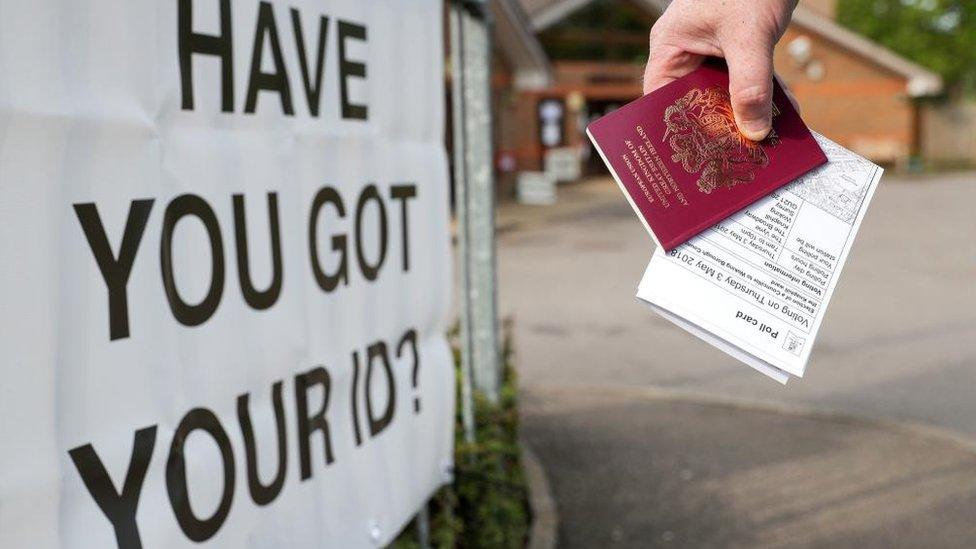
- Published29 April
